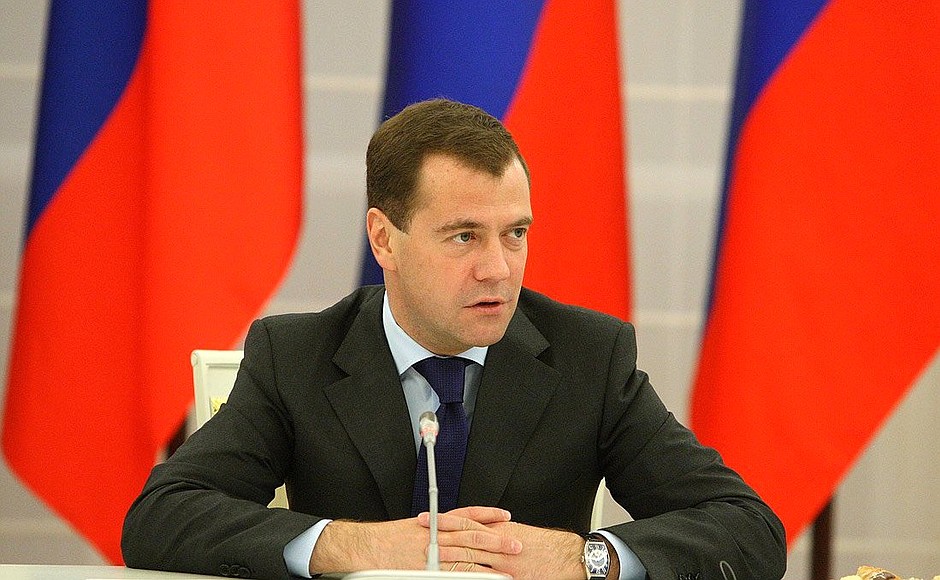
The Samuel P. Huntington Memorial Symposium on Culture, Cultural Change and Economic Development took place in Moscow on May 24–26. The symposium, organised by the Cultural Change Institute (USA) and the University — Higher School of Economics (Moscow), brought together prominent academic and public figures from Russia and abroad.
* * *
President of Russia Dmitry Medvedev: Good afternoon, colleagues,
Sometimes, it is important to take a break from our routine work. Indeed, that is what allows me to meet with you today.
You are participating in a symposium devoted to culture, cultural changes, and economic development. The symposium is named after Samuel Huntington, a well-known political analyst and economist. I am certainly interested to know about the conclusions you have reached during your discussions.
My opening remarks will not be long, especially since my presidential schedule is quite busy. I will just say that the relation between culture, ethics, and economic development becomes particularly evident during times of crisis.
Perhaps back in 2008, the only people paying attention to the relation between these fields were scholars and those interested in these issues on a scientific level. But now, after the events we lived through in 2008 and 2009, the global interconnection between all of these things becomes entirely apparent, as does the need for a broader approach to addressing economic problems. We need an approach that is based on more than pure economic pragmatism, and here I am not referring to just economic theories, but rather to some practical approach. Hence the fact that this topic is at the centre of your symposium seems particularly interesting to me, given that we have already entered a year of post-crisis development. Granted, that depends on our understanding of where we are in the process: whether we are overcoming the crisis or whether we are still in one of the global economy crisis development phases.
All of these problems are clearly relevant for our practicing politicians as well, so I am happy to have this opportunity to meet with you and hear your opinions on this issue.
I suppose that is all I would like to say at the beginning. It will be a real pleasure to hear you out, since that is the purpose of inviting you to my countryside residence.
<…>